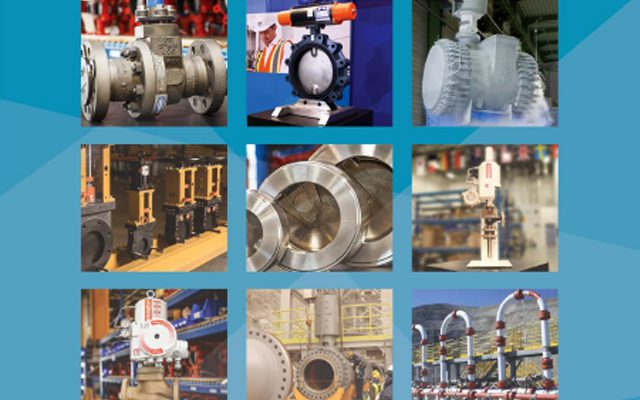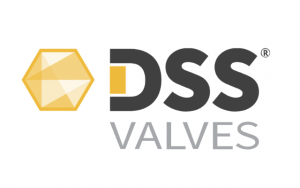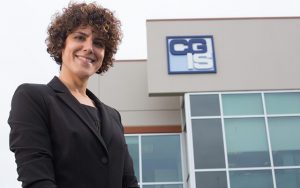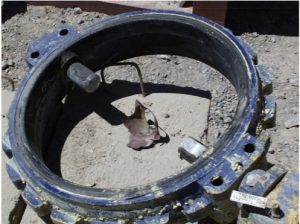Authors: Ross Waters, President of CGIS, and Malcolm Harrison, Fluid Equipment Consulting Inc.
We hope you enjoyed this 5-part article series! By selecting the correct severe abrasive service valve, maintenance can be virtually eliminated and installed costs can be drastically reduced.
True full port valves ensure an unrestricted flow path, minimize pressure drops and limit premature wear. Most valves can be manually operated but more frequently, in modern projects, are automated with pneumatic, electric, hydraulic or electro-hydraulic actuators. In higher pressure applications automated ball valves can provide cycling speeds that can match that of most operational requirements.
Now, more than 50 years after the first significant commercial slurry pipeline, valve engineers have the advantage of many innovations that came from varying resources including the NASA space exploration program. Using the correct valves for slurry applications is not only attributed to the modern advances in the application of modern elastomers and hardened materials used in knife gate valves, but also extremely hard coatings used for the surfaces of balls and seats in slurry ball valves. Credit is also given to the advances of easy access to complex finite element analysis (FEA) modeling tools, used to design the valves for such high pressures (up to 28 MPa). Without such technological advances the options available may have been too unreliable and too maintenance intensive to allow developers the capital approval for projects to proceed.
Since the first commercial slurry pipeline was built, the effectiveness of transporting abrasive mineral slurries over long distances and at high pressure has become almost commonplace. Projects transporting abrasive, erosive and corrosive slurries of iron, copper, zinc, phosphate, nickel, coal, as well as waste material (tailings) for many minerals, have been constructed and continue to operate reliably and profitably.
DOWNLOAD THIS ARTICLE SERIES AS A PDF FILE
Acknowledgements:
The authors wish to acknowledge the following companies for the use of pictures used in this article series:
- CGIS AITF Slurry Test Loop – Canada (Figure 3)
- BHP Billiton – Australia (Figure 4)
- Fortescue Iron – Australia (Figure 5)
- ValvTechnologies, Inc – USA (Figures 6,8,9,10, & 12)
- Samarco Mineração – Brasil (Figure 10)
- Compañía Minera Antamina – Perú (Image of the Choke Station in Part 4)
- OCP – Morocco (Figure 12)
Reference List
WASP, EDWARD J., KENNY, JOHN P., GANDHI, RAMESH L., Solid-Liquid Flow Slurry Pipeline Transportation, Trans Tech Publications, 1977
HARRISON, MALCOLM J., Severe Service Ball Valves for High Pressure Slurry Pipelines, Rio Pipeline Conference Proceedings 2009©
HARRISON, MALCOLM J., HUNT, KEVIN, Metal Seated Ball Valves for the Flow Control of Abrasive Fluids. In: Conference on Tailings and Mine Waste ‘98, Fort Collins, Colorado, USA: A.A. Balkema 1998.
WATERS, ROSS, Defining Severe Service Valves, Valve World, 2015
About the Authors
As the President of CGIS, Ross Waters has dedicated 35 years of his life to serving and improving the valve industry. Ross started CGIS, a valve distribution company, in 1980 in a small office in Vancouver, Canada. Thirty-five years later, the business has grown internationally and now serves clients and industries worldwide. Ross is the driving force behind increasing awareness of Severe Service Valves and is part of an MSS task forcewriting its definition. He has attended numerous conferences around the world presenting his paper, “Defining Severe Service Valves” and is well onto establishing himself as the leading expert in Severe Service. Ross is also an avid member of ASTM International G04 and has served as an expert witness.
Malcolm Harrison was born and educated in the UK and received a bachelor’s degree in mechanical engineering. After a successful career with major EPC’s working as a mechanical and piping design engineer, Malcolm relocated to the USA in 1980 to work for Bechtel in San Francisco. He eventually entered the world of valves sales in the early 1990’s. First with a specialist valve sales representative company and then as mining products industry manager with Houston-based, ValvTechnologies. In late 2014 he retired and started his own consulting company, Fluid Equipment Consulting. Malcolm now uses his vast experience to offer subject matter expert services related to all types of valve requirements.




